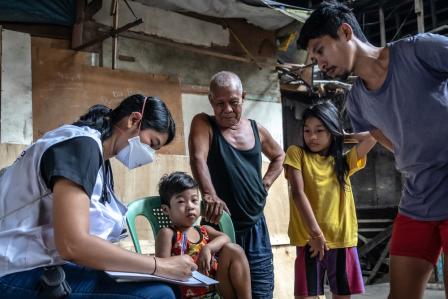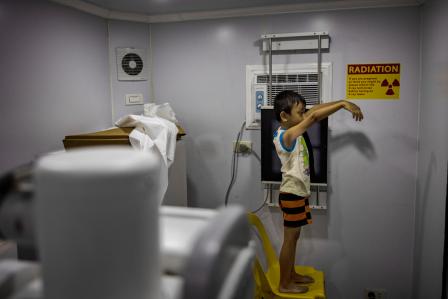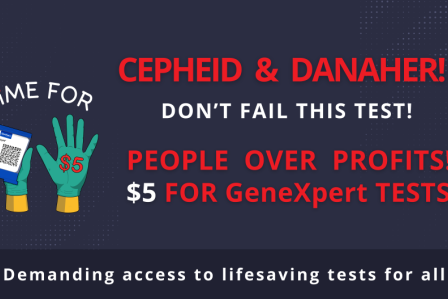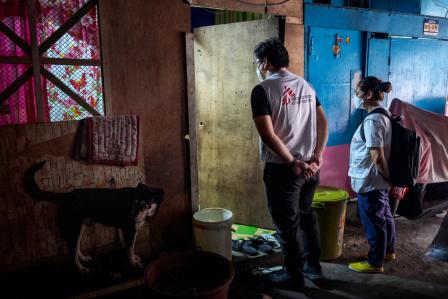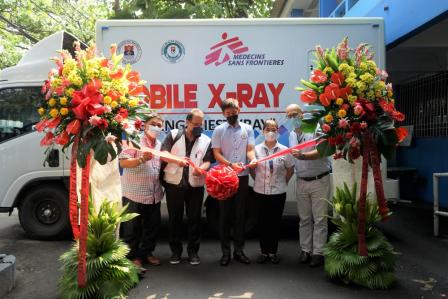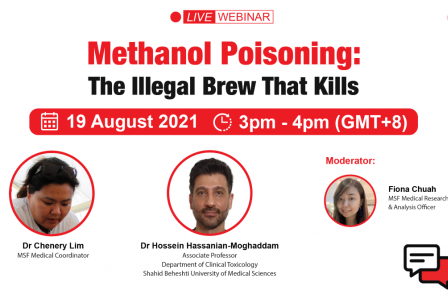World TB Day 2023: Catching up with tuberculosis in the Philippines
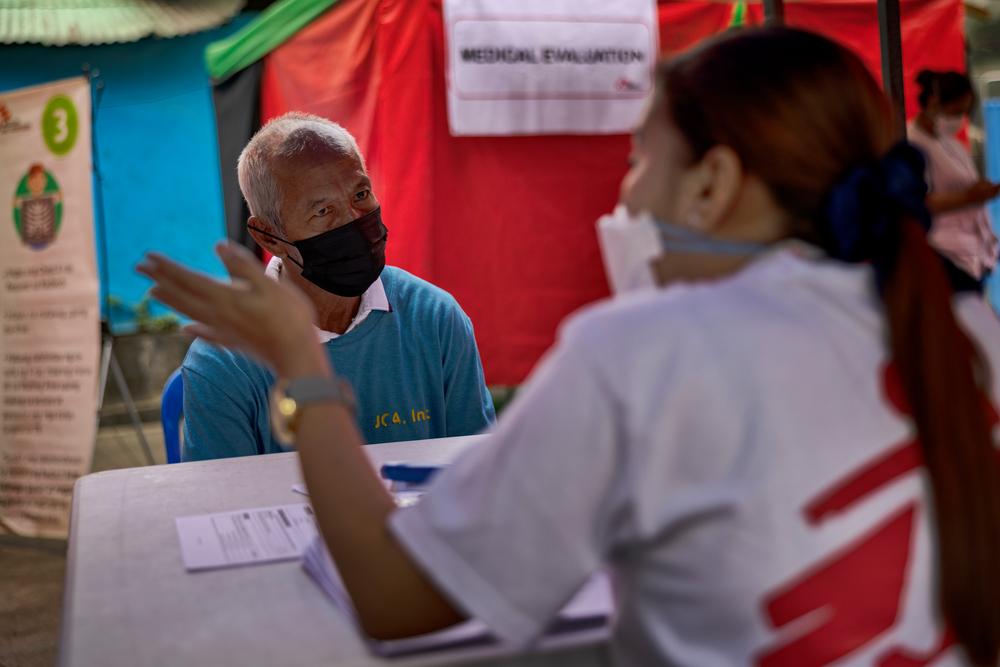
Truck driver Johnny is briefed before taking a free X-ray screening at a Doctors Without Borders active case finding site for tuberculosis. March 13, 2023 in Tondo, Manila, Philippines. © Ezra Acayan
24 March 2023 – When Amalia, 42 years old, received her tuberculosis (TB) diagnosis, she thought she would end up like her mother. "My mother, it was the cause of her death,” she explained, holding back tears. But when the doctor explained that TB was treatable, Amalia committed to completing her six-month treatment.
Amalia lives in Tondo, Manila, where Doctors Without Borders / Médecins Sans Frontières (MSF) is working closely with local health authorities to get tuberculosis (TB) prevention, screening and treatment back on track.
Worldwide, the fight to end TB faced serious obstacles in the past few years. According to the World Health Organization (WHO), TB deaths and disease increased in 2021, reversing years of decline between 2005 and 2019. Fewer people were diagnosed and treated, and fewer resources were available for essential TB services.
Adapting TB strategies to the pandemic
As with the rest of the world, the pandemic posed many challenges for TB in the Philippines. Aurelien Sigwalt, Head of Mission for Doctors Without Borders in the Philippines, shares, “During the pandemic, there was a decline in TB services worldwide, and it was very likely a similar situation in the Philippines. People couldn't undergo diagnosis and treatment as easily during the lockdowns, and people were sharing confined spaces for weeks on end. This is why we decided to collaborate with the Manila Health Department, to support TB screening and refer TB-positive patients to health centers for treatment.”
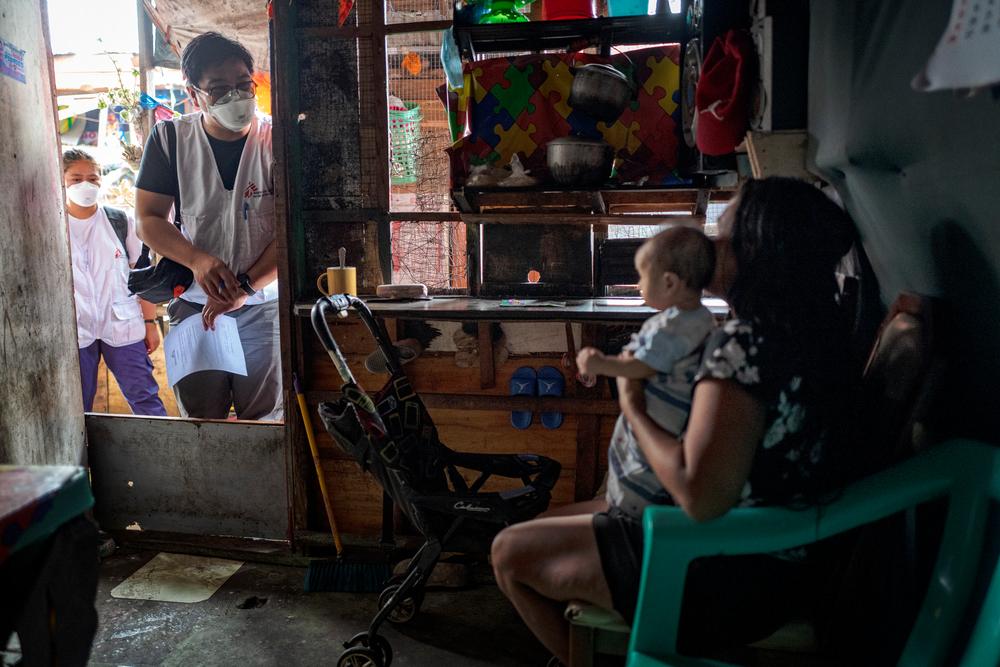
A mother with her two children, as Doctors Without Borders personnel Christian Jay Hontiveros and Belen Rance conduct contact tracing at a household with a confirmed tuberculosis patient. Aroma neighborhood, Tondo, Manila, Philippines. March 13, 2023 © Ezra Acayan
Trisha Thadhani is a TB doctor for Doctors Without Borders, and in speaking with people during the screening activities, she has learned, “In 2021, it seems not too many people were started on their treatment, because the health centers were focused on a lot of other problems that were not TB. When you have patients who aren't on treatment, they have higher propensity to transmit the disease within the household, which is also an important thing to look for.”
The Philippines is one of eight countries that accounted for more than two-thirds of global TB cases in 2021; according to the WHO, 7 per cent of the world’s TB cases can be found here. In 2022, the Department of Health (DOH) recorded 372,367 cases of TB.
Catching up with TB screening in Manila
In the City of Manila, Doctors Without Borders began a partnership with the Manila Health Department (MHD) in 2021. By focusing on activities such as active case finding (ACF), health promotion and patient support for people with TB in the slums of Tondo, Doctors Without Borders supports their commitment to prevent, diagnose, and link to care—and can work on getting the fight against TB back on track. Screening for active TB cases requires several steps, including a chest x-ray and sputum collection, and medical evaluation. Supporting the screening process is a software that uses artificial intelligence, designed to analyze chest x-rays and quickly recognize signs of TB. With this computer-aided diagnosis (also called “CAD4TBv.7”), the medical team is better equipped to evaluate the likelihood of someone having TB, and patients can be treated accordingly.
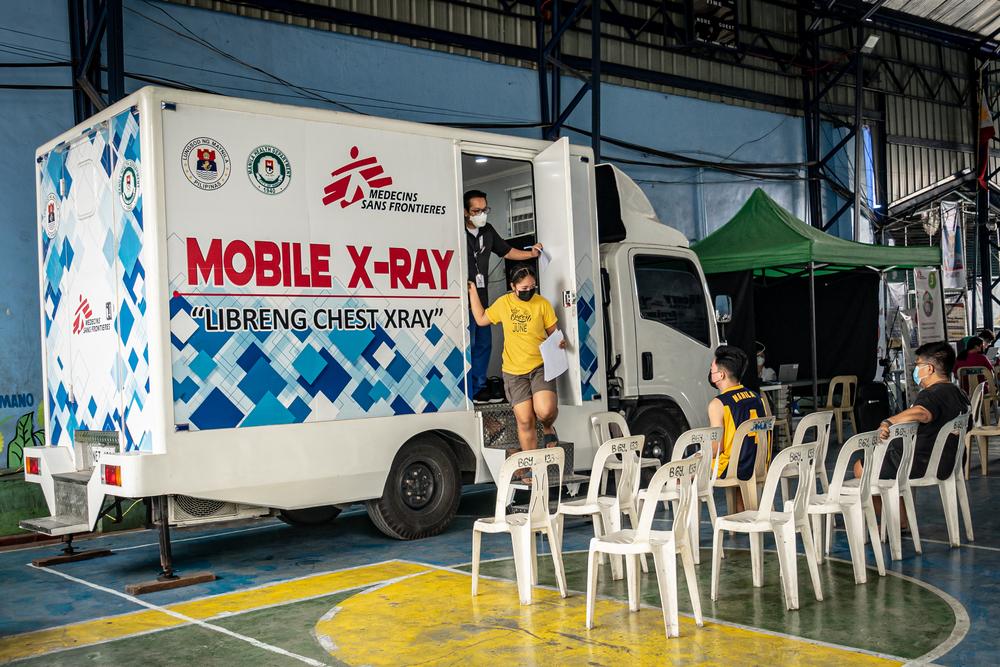
Residents wait for their turn for a free chest x-ray at the Doctors Without Borders mobile TB screening in Barangay 133 covered court. Tondo, Manila, the Philippines, March 1, 2023 © Ria Kristina Torrente
While the project is intended for the general population of Tondo, the ACF in particular targets people aged 15 and above. Those aged 14 and below, especially the household contacts of confirmed TB cases in the community, are also evaluated. Trisha explains, “We see if they are at risk for TB, or could benefit from a preventive treatment, or if they are already sick with TB, and then intervene if needed as well.”
Supporting patients in Tondo
Doctors Without Borders has screened over 6,500 people across various barangays of Tondo in the last ten months, and an average of 5 per cent of those screened are confirmed positive for TB. This significant figure tends to confirm our initial hypothesis of a likely increase in TB cases following the COVID-19 pandemic.
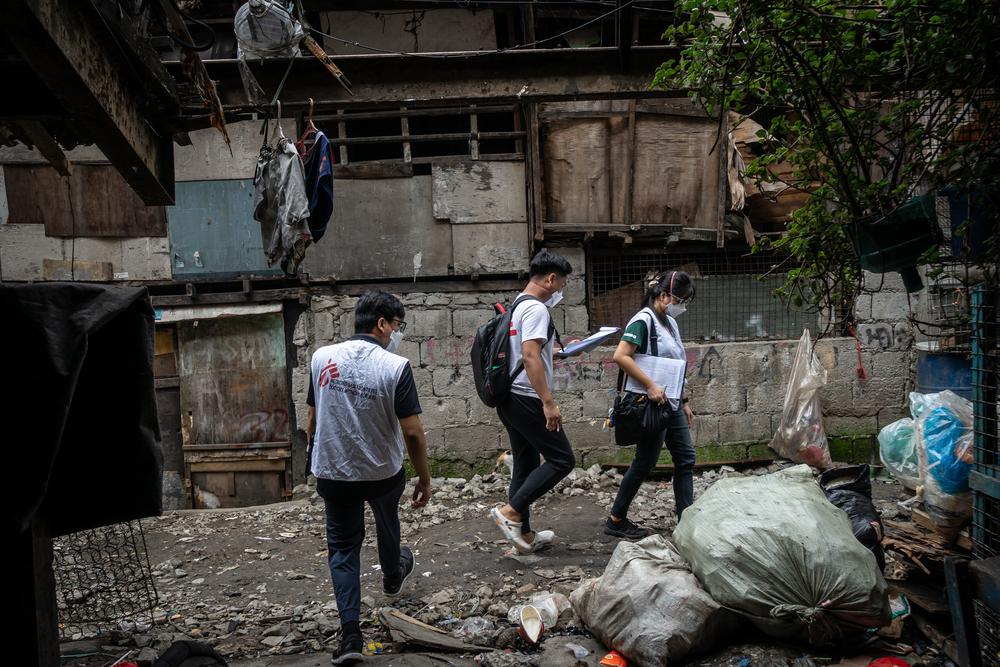
The Doctors Without Borders patient support team on their way to visit a patient in Aroma neighborhood. Barangay 105, Tondo, Manila, the Philippines, March 2, 2023. © Ria Kristina Torrente
To help curb the spread of TB in these densely populated communities, Doctors Without Borders works closely with the health centers in Manila, checking if patients who test positive have been referred for or have started treatment. If the patients have not started treatment, Doctors Without Borders teams encourage them to do so, providing further health education and counseling as needed.
The process of treatment is arduous, for both patients and staff. Patients must undergo six months of medication, with regular checkups at the health center. Our teams also encourage household contacts to get screened as well, and children who undergo preventive treatment must do so for three months. The teams who visit the communities go from house to house, explaining why screening and treatment are necessary even if one does not feel any symptoms.
Adding to the difficulty is the stigma and misconceptions surrounding TB. According to Ash Solaiman, health promotion supervisor for Doctors Without Borders, people in the community think “those who are likely to have TB are drug addicts, smokers or that one can catch the disease by shaking hands with someone who is TB-positive or sharing the same clothes. One important part of our work is to remind the community of key facts: one may get TB when an infected person sneezes, coughs or talks, not by sharing items. It is curable, so it is essential to get screened, and complete the treatment”.
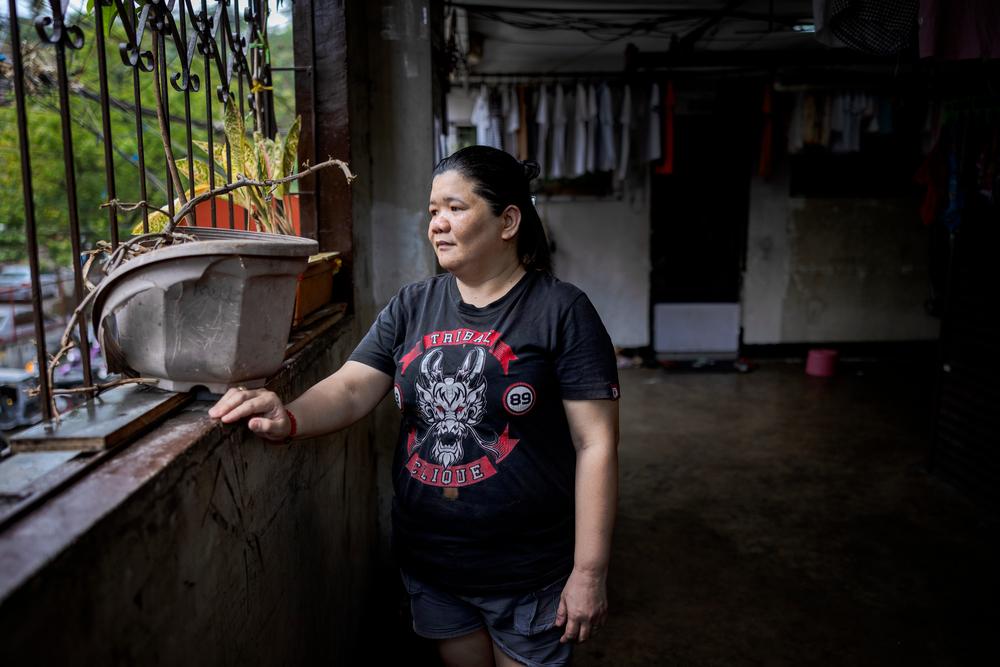
Amalia, a former Doctors Without Borders patient, at home in the Smokey Mountain neighborhood. Amalia was screened for tuberculosis in the Doctors Without Borders x-ray truck in Tondo in May 2022. A few days later, the diagnosis was confirmed in a Manila Health Department laboratory. A Doctors Without Borders patient support team contacted Amalia to tell her of the diagnosis, and to reassure her: she could recover by following a free-of-charge six-months treatment at her health center. "I immediately thought of my mother, that was the cause of her death. I thought, maybe this will kill me too." March 13, 2023 in Tondo, Manila, Philippines © Ezra Acayan
Doctors Without Borders / Médecins Sans Frontières (MSF) launched the tuberculosis project in Tondo, Manila, in 2021. Doctors Without Borders is one of the largest non-governmental providers of TB treatment worldwide. In 2021, 17,221 people in our care around the world were started on TB treatment, including 2,309 people with DR-TB. We are working closely with national TB programs, ministries of health, and other key stakeholders in our various projects around the world to ensure access to TB treatment.
